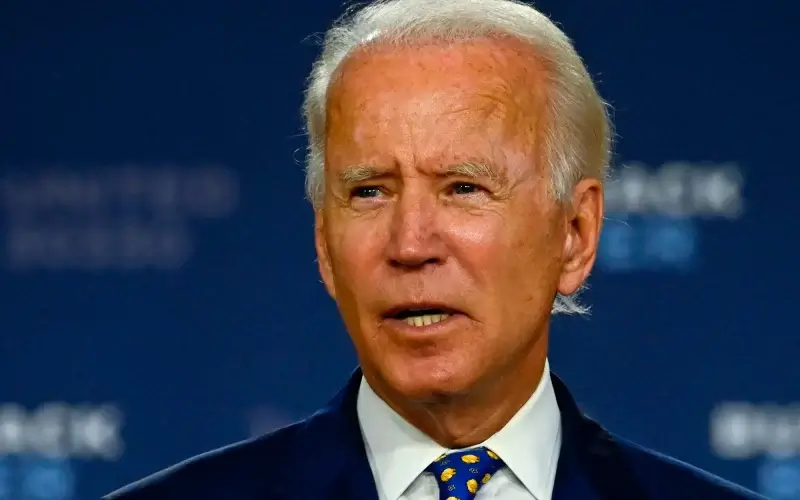President Joe Biden will finally make his first visit to the Middle East since taking office July 14. This comes months after Israeli Prime Minister Naftali Bennet extended the invite despite an unstable Israeli Parliament. As oil prices reach new highs, President Biden will also visit Saudi Arabia in an attempt to mend relations with Crown Prince Mohammed bin Salman and to encourage the Kingdom to increase oil production easing
the strain caused by the Russian invasion of Ukraine. Other priorities will include concerns over Iran’s growing influence, the state of the Israeli-Palestinian conflict, and Israel’s security in the region.
Here are five things to look for during President Biden’s visit:
1. Saudi Arabia is no longer a ‘pariah’ state.
While on the campaign trail in 2020, President Biden said that his plan was to make the Saudis “pay the price, and make them in fact the pariah that they are,” and that there is “very little social redeeming value in the present government in Saudi Arabia.” This was in response to the report that the Saudi Crown Prince had allegedly ordered the murder of journalist and dissident Jamal Khashoggi in 2018. More recently, when Russia invaded Ukraine, the U.S. banned imports of Russian oil, and the price at the pump skyrocketed. President Biden reached out to Saudi Arabia and the United Arab Emirates to ask for production increases, but neither leader would answer his call. President Biden failed to recognize the importance of our relationship with Saudi Arabia in maintaining order, preventing extremism, and countering Iran. Now, President Biden will have to backtrack his attempt to “recalibrate our engagement with Saudi Arabia” and hope to earn back the Saudi’s trust and prevent Saudi leadership from growing increasingly closer to Russia.
2. Requests for Oil
After initially rejecting President Biden’s phone call, the King and Crown Prince of Saudi Arabia have agreed to increase oil production. The oil producing countries, led by Saudi Arabia, agreed to increase by 50 percent the previously planned monthly increases for July and August. Essentially, they’ve combined three months of increases into two months. However, this is only an increase of 648,000 barrels a day. For context, the U.S. consumes 19.78 millions barrels per day. Thus, the increased production will have little effect on inflation or the price of oil, nor will it pave the way for lower prices before the midterm elections in November. The only other countries that could increase production are Iran and Venezuela, but increased production from U.S. adversaries would come only with unacceptable concessions.
3. Strengthening the Anti-Iran coalition
The influence of Iran’s regime poses a major threat to the security of the entire region. Iran is currently involved in multiple proxy wars in Lebanon, the Palestinian territories, Yemen, and Syria. They’ve deceived the International Atomic Energy Agency (IAEA) by reportedly using stolen documents to conceal banned nuclear activity and more recently have both denied access to crucial sites while removing over two dozen surveillance cameras. Meanwhile, Russia, one of Iran’s greatest partners, has moved many troops out of Syria since the beginning of the war in Ukraine. As a result, Iran stands to benefit as the opportunity for greater influence arises. Iran denies Israel’s right to exist and advocates for the destruction of Israel and Israelis. As Iranian influence grows, Israel, Saudi Arabia, and many U.S. strategic partners feel threatened.
In March, diplomats from the U.S., Egypt, Morocco, Bahrain, and the UAE met in Israel for the Negev Summit. Regional leaders expressed their concern over the U.S.’ ability to safeguard their interests and their concern over Iran’s influence. Israel is particularly concerned and has voiced strong rejection to the Biden administration's ongoing willingness to renegotiate the Iranian Nuclear Deal. When President Biden visits Israel in July, we should expect Israel to show their frustrations and press the U.S. to assume a stricter position against Iranian threats and growing influence.
4. Discussion of the Israeli-Palestinian Conflict
President Biden will meet with Israeli Prime Minister Naftali Bennet, President Isaac Herzog, Defense Minister Benny Gaetz and Foreign Minister Yair Lapid to discuss the future of the U.S.-Israel partnership. Following his meeting with top Israeli leadership, President Biden will travel to Ramallah to meet with Palestinian Authority Chairman Mahmoud Abbas to discuss stronger ties between Israel and the Palestinian Authority. Abbas has expressed frustration with the U.S.’ reluctance to reopen the consulate in Jerusalem. Instead, the U.S. has established a special envoy to the Palestinians, Hady Amr, who will provide a direct line between the Palestinians and Washington. Israel has suggested a Palestinian mission in Ramallah, but Abbas has rejected this as he views East Jerusalem to be the sole capital of the Palestinian people. While ambitious, Biden hopes that he can make some headway on the Israeli-Palestinian conflict, and U.S. Assistant Secretary of State for Near Eastern Affairs Barbara Leaf is currently meeting with Israeli and Palestinian leaders ahead of Biden’s visit. Nonetheless, at present moment progress seems unlikely. In fact, many are confused as to what he hopes to accomplish in the region as tensions have increased in recent months, and the Israeli parliament is unstable.
Much of the recent violence has centered around the Temple Mount in Jerusalem, which is the third holiest site in Islam and the holiest site in Judaism. The coalition government in Israel postponed a Knesset vote to renew regulations that allow those in the Israeli West Bank to be subject to Israeli law, rather than military rule. If the regulations are not renewed, Israelis in the West Bank will no longer be able to access many rights they are entitled to by Israeli law. These developments make a solution seem more unlikely than ever.
5. Expanding the Abraham Accords
Former President Donald Trump’s Abraham Accords have legitimized Israel as a regional leader and reliable partner in the Middle East. While at first hesitant to support the accords that were negotiated by the previous administration, the Biden White House has more recently shown interest in expanding its realm. Secretary of State Antony Blinken noted that “Saudi Arabia is a critical partner to us in dealing with extremism in the region, in dealing with the challenges posed by Iran, and also I hope in continuing the process of building relationships between Israel and its neighbors both near and further away through the continuation, the expansion of the Abraham Accords.” It seems that tense relations between the U.S. and Saudi Arabia have not derailed the President’s hopes of Saudi Arabia normalizing ties with Israel. However, moving forward with a new partnership depends on multiple considerations. Primarily, Saudi Arabia has said that they will not recognize Israel until the Israeli-Palestinian conflict improves. Saudi Arabia has long stood for the plight of the Palestinians, even when other states abandoned pan-Arab solidarity. Saudi Arabia is also the custodian of Islam’s two holiest sites, Mecca and Medina, and therefore a leader of the Muslim world. If Saudi Arabia normalizes ties with Israel, some may view the move as an abandonment of their responsibilities and become frustrated with the regime. This would be especially dangerous as Saudi Arabia and Iran are locked in an ongoing ideological battle for influence in the Middle East. This may be too great of a cost for the Saudis. Despite these challenges Saudi leadership has shown significant interest in normalizing ties and joining the Abraham Accords, but they maintain that this is contingent on the Palestinian issue. Saudi-Israel covert relations have likely improved immensely as Arab leaders have repeatedly met with Israeli leaders without contest from regional leader Saudi Arabia.










